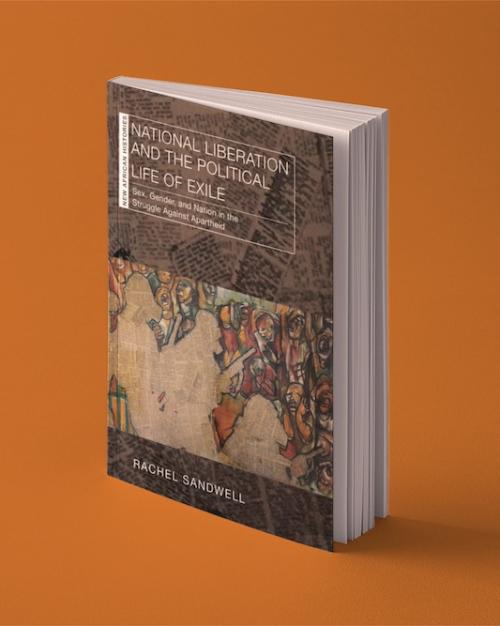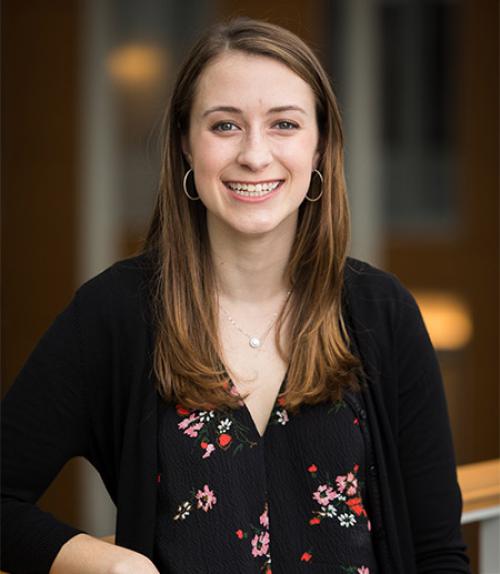Cara Sierks
Government & Economics
Edina, MN
What was your most profound turning point while at Cornell?
My most profound academic turning point came when I went from being a consumer to a producer of knowledge. For my first five semesters at Cornell, I dutifully read journals and articles for my classes and assisted on a few research projects for professors in the government department. As I reached the midpoint of my junior year, I had learned a lot and was pretty sure I had figured out the overall point of being in school – namely, to apply the lessons of the academics before me to concepts covered in lecture. That changed during the spring semester of my junior year when I joined the Cornell in Washington program, which required me to complete a semester-long research project. About midway through the semester, it was time to switch from reading papers about my topic to designing my own evaluative analysis and contributing something of my own to academia. It felt deeply uncomfortable. I thought I was vastly underqualified to say anything original, but I took the leap. My advisor helped me see that I was more than able to design my own study and collect my data, and as I progressed I realized that my time at Cornell had really been preparing me for this, the chance to truly apply what I had learned to something completely of my own design. At the end of the semester I felt a profound sense of accomplishment as I presented my analysis. That experience and my work on a thesis this year have given me confidence that I can produce something meaningful, which I expect will come in handy in my career.
What, if any, research projects did you participate in at Cornell?
I participated in four research projects at Cornell, two where I assisted professors in their own research and two projects of my own. During my freshman and sophomore years I assisted two government professors and graduate students on projects related to unemployment insurance benefits and the impacts of federalization and political polarization on state elections. After working on these projects and learning about poverty policy and income inequality in my classes, I had the opportunity to combine my research skills with my areas of interest while completing a research paper for a class I took during the Cornell in Washington program. My paper analyzed the effectiveness of area-based poverty initiatives, an innovative federal-local partnership, to holistically improve the quality of life for residents of selected cities. Finally, this year I am completing a thesis in the government department that analyzes the communication and resident outreach in those area-based poverty initiatives to see if it can inspire specific voting behaviors.
Who or what influenced your Cornell education the most? How or why?
I have been lucky to learn from many incredible people during my time at Cornell, but I would say Professor Suzanne Mettler most profoundly influenced my education. Professor Mettler has fundamentally shaped the way I analyze government programs and politics, and as a result, shifted the way I view the world. I took Professor Mettler’s Intro to American Government and Politics class the fall of my freshman year, and the first reading I did for the class changed the way I think about government programs and program delivery. Professor Mettler’s passion for the subject left me wanting to learn more – which I was able to do the summer of my freshman year as her research assistant. Professor Mettler is also my advisor in the major, and every time I meet with her I get that same inspirational feeling and verve to discover.
How did any of your beliefs or interests change during your time at Cornell?
I have known for a very long time that I want to work as an advocate for social change, but I was never sure exactly what that would look like because I was so passionate about so many different areas. I grew up learning about past injustices and have always been eager to take on the challenges of the future, such as climate change, gender equality and voter disenfranchisement. My Cornell classes and experiences helped me discover where I wanted to concentrate my efforts. After taking a course in public policy and many different economics classes that focused on economic inequality, I realized that poverty policy was the issue area that perfectly combined my passion for social justice with my compassion, desire to advocate for others and ability to use my skills to meaningfully contribute to change.




